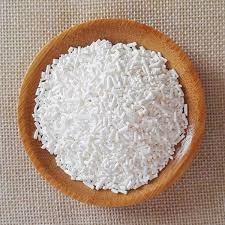
e960 sweetener
Exploring E960 Sweetener A Comprehensive Overview
In recent years, the demand for sugar alternatives has escalated dramatically, driven by an increasing awareness of health and dietary preferences. Among the various sweeteners available, E960, also known as Steviol Glycosides, has garnered significant attention. E960 is derived from the leaves of the Stevia rebaudiana plant, which is native to South America. The appealing aspects of E960 lie in its natural origin, low caloric value, and intense sweetness, making it a preferred choice for many consumers and manufacturers alike.
The Origin and Composition of E960
Steviol glycosides are extracted from the Stevia plant’s leaves, which contain several active compounds, notably Stevioside and Rebaudioside A. These glycosides are responsible for the sweet flavor. Stevia leaves naturally have a sweetness that can be up to 300 times that of sucrose (table sugar), providing an incredibly potent sweetening effect with a minimal amount needed.
The extraction process usually involves steeping dried Stevia leaves in water or alcohol, then purifying the extracted mixture. This results in a concentrated form that can be used as a sweetener. One of the standout qualities of E960 is that it is zero-calorie, which makes it particularly appealing for those seeking to reduce sugar intake, manage weight, or control blood sugar levels.
Health Benefits and Safety
E960 has been widely studied for its health implications. One of the most often-discussed benefits is its potential effect on blood sugar levels. Unlike traditional sugar, E960 has a negligible impact on glucose and insulin levels, making it suitable for diabetics and those on low-carbohydrate diets. Furthermore, early research indicates that Steviol Glycosides may possess anti-inflammatory and antioxidant properties, though further studies are necessary to substantiate these claims.
The safety of E960 has also been evaluated by various health authorities. The European Food Safety Authority (EFSA) and the World Health Organization (WHO) have affirmed that Steviol Glycosides are safe for human consumption, establishing acceptable daily intake levels. As with any food additive, moderation is key; while E960 is generally recognized as safe, excessive consumption may lead to gastrointestinal discomfort for some individuals.
e960 sweetener

E960 in the Market
The rising health consciousness among consumers has led to a surge in the popularity of E960 among food manufacturers. It is now widely used in a variety of products, including beverages, baked goods, dairy products, and dietary supplements. Its versatility allows it to be blended with other sweeteners or used independently, giving manufacturers the flexibility to craft products that cater to various taste preferences and dietary needs.
Moreover, the appeal of natural ingredients resonates strongly with modern consumers. E960's status as a plant-based sweetener fits perfectly into the growing trend of clean label products, which emphasize transparency and natural sourcing. As a result, many brands are beginning to reformulate their products to include E960 as a more health-centric alternative to sugar.
Environmental Impact and Sustainability
Another noteworthy aspect of E960 is its environmental footprint. The cultivation of the Stevia plant generally requires fewer resources compared to traditional sugar cane or beet farming. Stevia cultivation can lead to reduced land use, lower water consumption, and less pesticide application. As such, incorporating E960 into food products can align with the increasing consumer preference for sustainability and eco-friendly practices.
Conclusion
As dietary preferences evolve and the demand for healthier alternatives intensifies, E960 sweetener represents a significant step towards improved food options. Its unique properties not only contribute to better health outcomes but also address environmental concerns. As consumers continue to seek out products that are both enjoyable and beneficial, E960 stands poised to be an integral part of the landscape of modern sweeteners. With ongoing research into its benefits and applications, this natural sweetener is likely to remain a popular choice in a health-conscious society.
-
Why Glacial Acetic Acid Food Grade Is Essential in FlavorNewsMay.26,2025
-
Surging Export Growth of Food Additives in ChinaNewsMay.26,2025
-
How Ammonium Nitrate Fertilizer Boosts Crop YieldsNewsMay.26,2025
-
How 1,2,3-Benzotriazole Shields Plastics from UV DegradationNewsMay.26,2025
-
Cyanide in Gold Mining: Protecting People and the PlanetNewsMay.26,2025
-
Aluminum Hydroxide in Modern Sunscreen FormulationsNewsMay.26,2025
-
Understanding Synthetic Rubber OptionsNewsApr.27,2025
Hebei Tenger Chemical Technology Co., Ltd. focuses on the chemical industry and is committed to the export service of chemical raw materials.
-

view more DiethanolisopropanolamineIn the ever-growing field of chemical solutions, diethanolisopropanolamine (DEIPA) stands out as a versatile and important compound. Due to its unique chemical structure and properties, DEIPA is of interest to various industries including construction, personal care, and agriculture. -

view more TriisopropanolamineTriisopropanolamine (TIPA) alkanol amine substance, is a kind of alcohol amine compound with amino and alcohol hydroxyl, and because of its molecules contains both amino and hydroxyl. -

view more Tetramethyl Thiuram DisulfideTetramethyl thiuram disulfide, also known as TMTD, is a white to light-yellow powder with a distinct sulfur-like odor. It is soluble in organic solvents such as benzene, acetone, and ethyl acetate, making it highly versatile for use in different formulations. TMTD is known for its excellent vulcanization acceleration properties, which makes it a key ingredient in the production of rubber products. Additionally, it acts as an effective fungicide and bactericide, making it valuable in agricultural applications. Its high purity and stability ensure consistent performance, making it a preferred choice for manufacturers across various industries.











